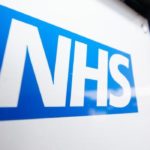Health chiefs are planning changes to where children with cancer receive their life-saving treatment.
They want to locate most specialist services for children with the most complex conditions on one site in London. They mainly use two London hospitals at the moment.
But most young patients from Brighton and Hove and the surrounding area should still receive much of their treatment at the Royal Alexandra Children’s Hospital, councillors were told.
The Royal Alex, in Eastern Road, Brighton, would continue to be a sub-regional “paediatric oncology shared care units”.
Details of the rejig emerged at a Brighton and Hove City Council meeting at Hove Town Hall on Wednesday (15 March).
A senior NHS official set out the proposals to a special meeting of the council’s Health Overview and Scrutiny Committee.
Labour councillor Jackie O’Quinn and Green councillor Pete West asked about transport and the cost of journeys for children and their families, with some expected to stay away from home during treatment.
Regional medical director Chris Streather said that some help with travel and parking costs should be available, along with other support.
Some of the help would be means-tested but there were also hospital charities able to help families who were struggling financially.
And if young patients did have to stay in hospital in London, their families could stay at a nearby Ronald McDonald House.
Dr Streather said that across the country about 1,400 children a year had a cancer diagnosis, with just over 400 of those in a region covering Sussex, Surrey, Kent and South London.
Those 400 children formed part of a total regional caseload of about 1,500 under-16s.
Dr Streather also said that 13 children from Brighton and Hove received inpatient paediatric cancer care at the Royal Marsden Hospital, in the London borough of Sutton, in 2019-20.
This was the joint second highest number by local authority in Sussex, Surrey and Kent.
The Royal Marsden runs the “principal treatment centre” for the region jointly with St George’s Hospital, in Tooting, south London. It is one of 19 principal treatment centres in England.
But there is no paediatric intensive care unit at the Royal Marsden and it cannot justify the cost of creating one.
As a result, children currently have to move between the two sites for specialist treatment, surgery and intensive care.
Starting from about 2026, NHS chiefs want the most specialised services provided on one site – to include a paediatric intensive care unit – and they are likely to pick from two options.
One is St George’s. The other is the Evelina London Children’s Hospital, in Lambeth, south London. The Evelina is run by Guy’s and St Thomas’ NHS Foundation Trust. Both are further away from Brighton than the Royal Marsden.
Dr Streather said that both were easier to reach by public transport than the Royal Marsden but, for many patients, car journeys would take longer and parking would be more challenging.
The cost of travel and journey times would not be the only factors considered by health chiefs when reaching their decision.
A report to councillors said: “Relatively few Brighton and Hove families need to access specialist children’s cancer care. However, for those that do, this is a very important service.
“Changes to children’s cancer care are therefore of substantial local interest and it is recommended that the council joins other local authorities across the south east in scrutinising these plans.
“Areas for scrutiny might potentially include
- which provider offers the best clinical model of care for local families
- continuity of care for young people currently receiving treatment
- support for families (eg, financial assistance for travel)
- what impacts, if any, there are on local children’s cancer services
- the degree to which local residents and representative organisations have been engaged with or consulted on the change plans”
…
Dr Streather said that care would be delivered as locally as possible, often through “paediatric oncology shared care units”. The Royal Alex provides this service for Brighton and Hove and the surrounding area.
He said: “Our proposals are to concentrate all services on one site although there will still be some patients who need complex radiotherapy who go up to University College London Hospitals.
“They have a proton beam facility which is the only one in the south of the country. Some neurosurgery will take place at King’s College Hospital (in south London).
“But the majority of patient care will take place on a single site and involve fewer transfers of sick children during the course of their treatment.”
The committee agreed that the changes were a “substantial variation in services” and voted to take part in a joint regional overview and scrutiny committee to look further at the plans.










